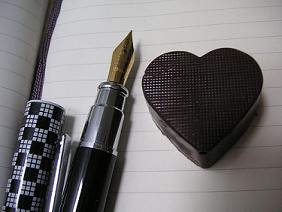“You don’t choose a story, it chooses you. You get together with that story, somehow; you’re stuck with it. There certainly is some reason it attracted you, and you’re writing it trying to find out that reason.”
Robert Penn Warren
On a daily basis, droplets of information, sounding much like the rain on our tin roof, make tiny taps against our brains, telling us things, and with their secret knocks, gaining entry. Books, television, internet, newspapers, radio …
The information is important, if not skewed or sensationalistic at times, and good to know; when you know, things change. YOU change.
The same goes for the query process. With writer as hunter, and agent as gatherer, being cast into the hunter role has been a stretch that feels as good as it felt unsettling, at first. Sure, I’m a person who wants to stretch in order to grow, even if the process is painful from time to time, or riddled with uncertainty. I know that, in the end, when you secure that happy ending, it’s those very factors, coupled with courage, that make the outcome sweeter.
The truth is, in the grand scheme of things, the impossible and the difficult make the ride more exciting. In their simplest terms, obstacles are just another opportunity to repledge the cause, and to (hopefully) solidify your convictions.
I do have my work cut out for me; I may only say it loud enough to hear when I’m alone, but I write to improve the world — as I believe words have that much power. Touching or reaching just one person changes their world, and in consequence, their contribution to the world at large. It really is that simple, sometimes.
We read others’ words for a myriad of reasons, and carry with us those sentiments that wake us from our apathy. We turn to those words as a source of wisdom, validation, comfort, sweetness, mind-expansion, understanding, and for every other reason we need them.
As I continue to navigate the query process, laughing and screaming from the front row of the rollercoaster, I’m learning not to take rejection personally, not to give up the fight, not to surrender to self-doubt, and how much room there is to grow in the process.
Overall, I’m a better person for it; in the worst case scenario, even if I never published, the novel I wrote changed my world, and my contribution to the world at large.
And it continues to do so. It has its own reasons for being, bigger than me, and separate from my personal vision. It has already worked its magic on me, and whether that magic is contagious remains to be seen, but the courage to hope and to believe may very well be the best magic of all.









